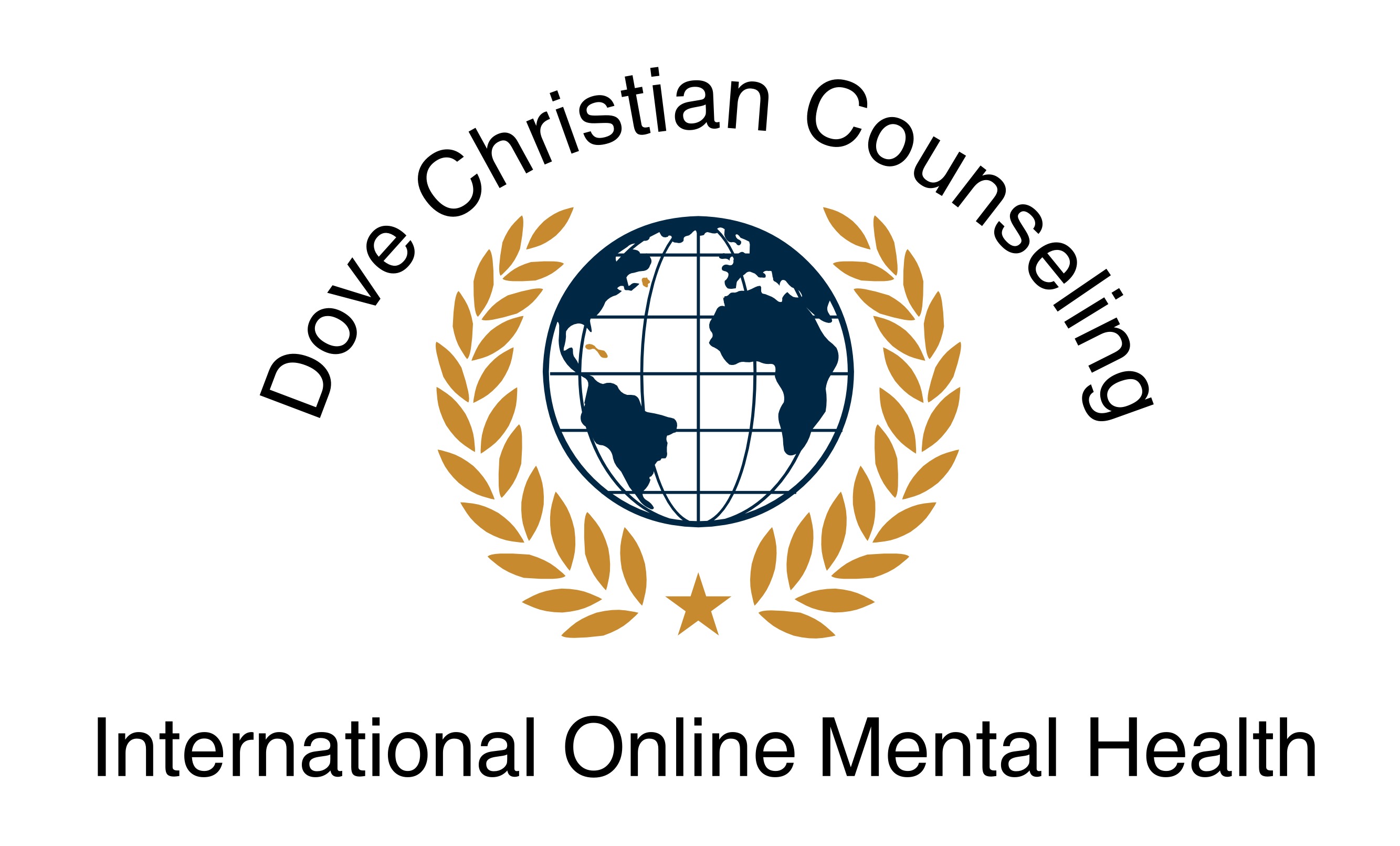
Parents of Estranged Adult Children
Patricia Jones, M.A.
Browse Counseling Categories
Important Information
Articles by Patricia Jones, M.A.
Inspirational Videos
One of the most painful things that a family can go through other than losing a child to death, is for that child to become an adult and then disown and estrange themselves from their parents. They may do this to one parent or both parents. Regardless of whether it is both parents or just one, the results for the estranged parent (parents) is a devastation that is so severe, it affects almost every facet of their lives.
There appears to be an "hidden epidemic" of this phenomena going on today in America and I daresay it is world wide. While it does affect the parent who is estranged no matter what their sex, there is evidence that it is happening to mothers more than fathers.
Perhaps this is due to the fact that mothers are the "nurturers" and are usually the primary caretakers of their children during their growing up years. And in the case of domestic violence, they may also be the "victims" of their abusive husbands at the same time they are trying to raise their children. So for a mother to be nurturing and protecting of her children while she is living in fear and in an explosive environment, is a tall order for any woman to meet. But most of them try anyway.
There are as many reasons why estranged adult children cut off their parents as there are grains of sand in the ocean. The list is endless, some of it is justified and most of it is not. Here are some of the most common reasons that adult children state to justify their actions.
1). The parents divorced and they side with one parent over the other, or they are upset with both parents.
2.) They do not approve of their parents new spouse and are jealous of that spouse and feel abandoned by the parent.
3.) They are used to the parent paying for everything that they want, and when the parent decided that they are grown up now and should pay their own way, they get furious and disown the parent.
4.) One parent is actively, willfully, and manipulatively brain washing the adult children against the other parent by telling them lies about that parent, or making them think that whatever they did wrong in the marriage when the kids were growing up was the result of the actions of the other parent. This is called Parent Alienation Syndrome.
(By doing so, they exonerate themselves from all the negativity that the children may have built up against them, and even make the adult children feel sorry for them and see them as the "victim" of the estranged parent.)
5.) They have moved away and met new friends who are very disrespectful to their parents as well, and who convince them that "family is not important" and that their "new family is their friends."
6.) They have met someone who they marry or live with , who does not like their parents and who influences them to cut off their parents from their lives. These types of spouses are usually very controlling, insecure, and jealous of anyone that takes their partners attention off of them. They issue ultimatums that are "either them or me" types of threats.
7.) Sometimes they are ashamed of the parent/parents because they have married into a more lucrative family and lifestyle than they grew up in. And materialistic concerns and status are more important to them then being supportive of their parents no matter what their economic status. Figuratively speaking, their values have changed for the worse.
8.) Some parents have done such a good job of raising their children that they did too much and these adult children have now become narcissists who care only about themselves and who have become cruel and heartless towards the very people that got them where they are today. They have turned into "people we don't know" or "people we love, but don't like anymore." In fact, many estranged parents feel like their adult children are complete strangers when they used to be very close to them and their "best friend."
Justified reasons why adult children cut off their parents.
9.) Interfering relatives, aunts, uncles, sisters, brothers, grandmothers, grandfathers, mothers, fathers, cousins, etc. who actively slander the estranged parent to their adult children because they have issues with them themselves and see this as a form of revenge, and who actively try to be the surrogate best friend, mother, father, etc. of the adult children. Which means the dysfunction in this family was well in place before the adult children were even born.
10.) The adult children have become involved with a religious cult, or friends who tell them they do not need their families and that the cult/friend is their family. Or the reverse. They have become involved with atheists who actively recruit them to give up their faith in God and thus their ties with their believing, more conservative parents. Also, they have become so involved with a super conservative church that they think their parents are not Christians and are going to hell.
11.) They have taken something that you said or did, and misinterpreted what you meant or did, and will not listen to any explanation that you have which would clear up their misinterpretation. They will not talk to you, forgive you, or allow for any latitude to mend things. You find yourself between a rock and a hard place.
There are endless reasons, or a combination of reasons for the estrangement, but the bottom line is the estranged parent is shocked, numb, sad, angry, disappointed, dismayed, cannot believe that this has happened to them, depressed to the point of not being able to function, and even suicidal. It feels like your child has died. But you know they are alive and just not available to you anymore. Many times your estranged child will prevent you from seeing or having any contact with your grandchild, so not only are you an estranged parent, you have also become an "estranged grandparent."
There are legitimate reasons why adult children disown their parents. But they are very obvious to everyone. The parent was abusive to them mentally, emotionally, verbally or physically when they were growing up and the abuse continues to this day. Or they are a practicing alcoholic, or drug addict, are narcissistic themselves or are controlling and intrusive, and won't allow their adult children breathing room or independence or privacy. They could be the meddling "mother-in-law" or the sexually abusive father, etc. They are "toxic parents" who drain their adult children emotionally, using guilt to manipulate them, and who have no lives of their own so they are way too dependent on their adult children for their happiness.
How do adult children estrange their parents from their lives?
Estrangement can be a gradual "falling away" that takes place over weeks, months, and sometimes years, or it can be "sudden" and takes you by surprise. It may be "on again off again" and you feel like you are walking on egg shells, not knowing when the next hurtful comment is made, the next abusive email or phone call comes, or the next "slam the door in your face" happens.
They stop emailing you, or answering your emails, they don't call you or accept your phone calls, they block you on Facebook, or block or change their phone numbers, they threaten you with a restraining order if you come near them or their house, they refuse to let you see the grandchildren, they don't invite you to their wedding, their baby shower, their college graduation; pretty much every single "once in a life time event" in their lives you are excluded from.
You are not welcome at births, weddings, funerals, grandkids birthdays, Christmas, Easter, Thanksgiving, etc. You are not called on your birthday, or Mother's Day, or on holidays. You have to rely on other people to tell you what your child is doing or even what they look like anymore. Is it any wonder that estranged parents are depressed, confused, and feel hopeless and lost?
Additional questions you may have:
1.) Should I keep trying to contact my adult child or should I wait it out?
2.) What does God think about this ?
3.) How do I handle feeling guilty? Even when I have done nothing wrong?
4.) What resources are out there to help me get through the day?
5.) Should I just show up on their door step or place of work and confront them? Should I follow them on Facebook, etc. to find out things about them?
Copyright © 2006 - 2024 Dove Christian Counseling Center. All Rights Reserved
Estrangement from your adult children is one of the most painful experiences that a parent can go through and it helps to have someone to talk to about it.
If you are at a stage of despair right now and cannot see the light at the end of the tunnel, please do not hesitate to contact me by following the instructions below.
Patricia Jones, M.A.
Dove Recommends the following books related to Estrangement
-Coleman, J. (2007). When Parents Hurt. NY: Harper Collins. Warm towards parents; parts aimed at parents of teenagers.
-Davis, L. (2002). I thought we‘d never speak again. The Road from Estrangement to Reconciliation. Harper Collins. About relationships other than just parents and estranged children.
-Herst, C. (1998). For mothers of difficult daughters: How to enrich and repair the bond in adulthood. Aimed at mothers who had difficult teenagers.
-Lebey, B. (2001). Family estrangements: how they begin, how to mend them, how to cope with them. Longstreet Press.
-Sichel, M. (2004). Healing from family rifts: Ten steps to finding peace after being cut-off from a family member. NY: McGraw-Hill. The best work to explain the thinking of those adult children.
-Smith, S.L. (1991). Making peace with your adult children. NY: Perseus Publishing. Emphasis on sexual abuse but also pointers in communication skills useful in the semi-reconciliation stage.
- Sucov, E. (2006). Fragmented Families: Patterns of Estrangement and Reconciliation. Southern Hills Press.
- Twenge,J. & Campbell, WK. (2009). The narcissism epidemic: Living in the age of entitlement. NY: Free Press.
Janet Thompson (2007) Praying For Your Prodigal Daughter,( Hope & Encouragement for Hurting Parents.) Howard Press.
Quin Sherrer and RuthAnne Garlock
Although Patricia Jones, M.A. schedule fills quickly, she is creative in working with you for an appointment. She will return your phone call within a few hours of receiving it. Or respond to your e-mail question usually the same day that you send it.
We accept PayPal and all other major credit or debit cards. Once you hit the PayPal button it will allow you to pay with PayPal or another major credit or debit card. No PayPal account is required.
STAGES PARENTS GO THROUGH IN ESTRANGEMENT
1. Total shock and disbelief: This cannot be happening, it feels surreal. This feels like a bad movie.
2. Repetition: You keep going over and over in your head what your last interaction was like. Who said what, what they said, who was there, what you said, how it should have gone, etc. You begin to play different scenarios over and over in your mind of the way it should have normally gone.
3. Utter shock returns: When you realize that the way it went was horrendous, and it escalated to severe levels before you even knew what was happening, you go into shock and disbelief all over again.
4. Bargaining: You begin to think of ways you can rectify your relationship with them. You suggest you go to a counselor together, you write them long e-mail letters listing every good thing you have done for them, how much you love them, defending yourself, even admitting to things you never even said or did, just to keep the peace, and to keep them in your lives.
5. Pleading and Groveling: You give up all sense of your own self-worth and respect and offer to do ANYTHING they want, just to allow you back into their lives.
6. Guilt sets in: When you finally realize that NOTHING is going to change their minds, you do a guilt number on yourself, going back over their entire lives, searching for things you might have done or said that has resulted in how they are treating you now.
7. Depression: You become almost suicidal: You feel like dying and don't want to live anymore. This affects your spouse, your remaining family members who want you to "Just get over it" and move on with your life. This causes arguments with them, and friction within your household.
8. You make deals with God: You pray and plead to God to CHANGE this situation and finally reach for outside help to get you through this nightmare.
9. Depression turns to ANGER: Finally you realize that this is completely unfair, not right, not true, you don't deserve this, you were a good parent, and you begin to see that THEY are the ones with the problem, not you.
10. New revelations: You begin to wonder if you raised a monster, who is selfish, a narcissist, and who you really don't even want to be around anymore if they are going to treat you this way. You realize you are not to blame and never were. You start to examine who might have influenced your child to reject you.
11. Acceptance and Peace: This is when a "light begins to shine in the darkness" and you can see an end to this nightmare, and you begin to stand up for yourself, get your self-worth and self-respect back. and set your own boundaries with your child.
Issues and questions of how to proceed
Holidays and Birthdays: Do we send gifts? Do we send cards? How do we get through the special family days, of Christmas, Thanksgiving, etc.?
Should we just ignore them from now on? Go "no contact?"
What about Grandchildren: They are the innocent ones in all of this. How do we keep in contact with them and let them know we love them?
Who should we tell? It is hard to admit to others that your own child wants nothing to do with you. How do you handle the people who will criticize and judge you?
What about other family members who still see and interact with your child? This causes tremendous hurt and resentment.
Online Support Groups for Estranged Parents of Adult Children
www.drjoshuacoleman.com/forum/when-parents-hurt/ A forum for parents and/or children of different estrangements sorted by categories.
www.healingestrangedrelationships.org Jane Toler, PhD. has been facilitating a group in Dallas, Texas for mothers of estranged adult children since September 2005.
ths.gardenweb.com/forums/load/parents/msg0809070712860.html - 727k – A forum for parents whose adult children are estranged.
www.friendsandfamilyforum.com/showthread.php?t=533-40k Friends and family forum.
www.dailystrength.org/groups/estranged-parents-of-adult-children-seeking-help For parents of all spiritual backgrounds.
www.dailystrength.org/groups/estranged-parents-of-adult-children-seeking-peace For christian parents.













